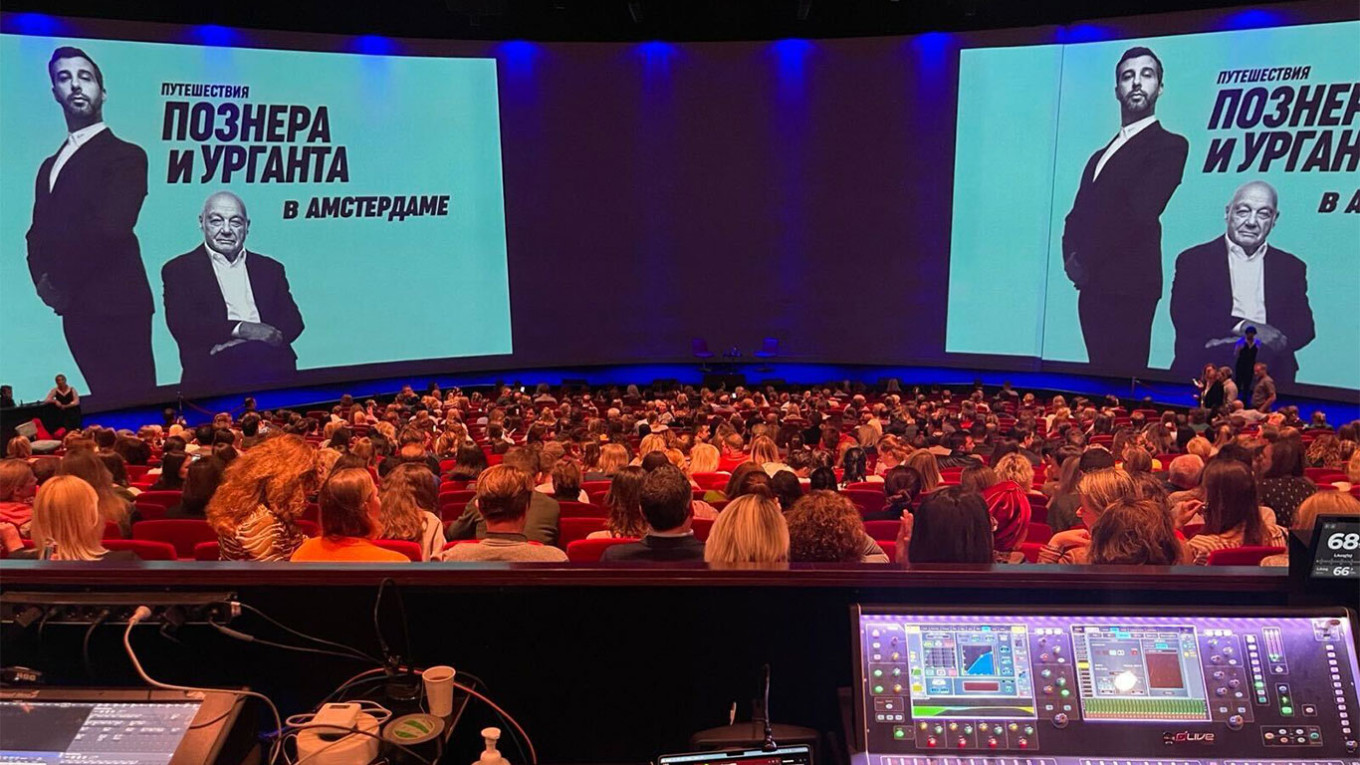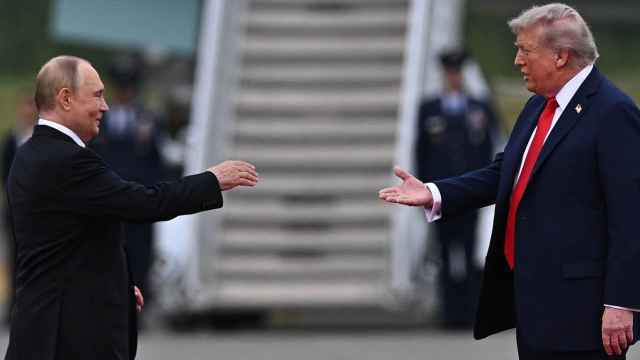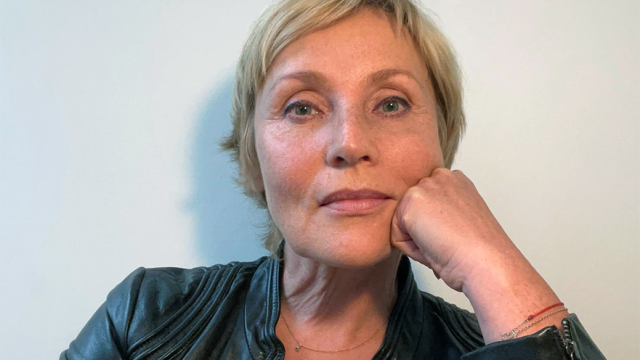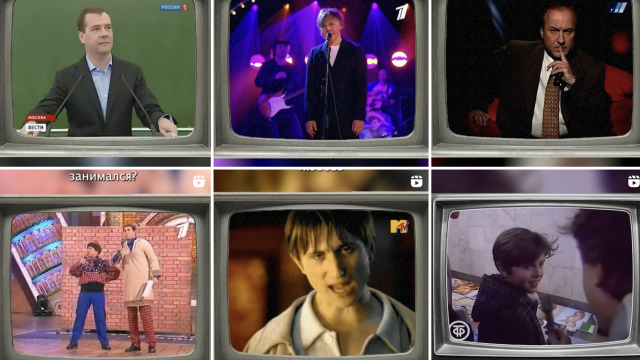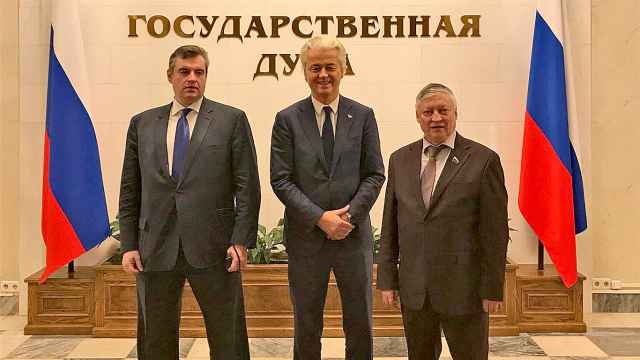AMSTERDAM — A live event headlined by two Russian television celebrities has sparked controversy in the Netherlands, with critics decrying the presence of what they call Russian propagandists on European stages during Moscow’s war on Ukraine.
Veteran Channel One host Vladimir Pozner and late-night talk show host Ivan Urgant’s European tour, called “The Travels of Pozner and Urgant,” kicked off in Amsterdam on Tuesday and will be followed by stops in Zurich, Berlin and Frankfurt.
The show is described as an evening with the two men, who co-hosted several travel shows, as they reflect on stories from their trips around the world.
Though billed as an apolitical event, politics has overshadowed much of the discussion surrounding it.
Critics have slammed the Amsterdam theater for hosting “Russian propagandists” and allowing them to profit by performing in Europe, calling it a “stab in the back” of the tens of thousands of Ukrainians who fled to the Netherlands because of Moscow’s invasion.
Others say that banning events based on politics would be stooping to the level of the Kremlin, which has silenced independent journalists, activists and artists inside Russia.
Around 25 protesters, several of whom wore Ukrainian flags around their shoulders, stood outside Theater Amsterdam in the rain as attendees arrived, shouting slogans like “Shame on you,” “Russians go home,” “Russia is a terrorist state” and “Russian propaganda kills.”
“I think you can hear why,” said Anna, a young woman from Ukraine who has been living in the Netherlands for two years, when asked why she was at the protest.
“We have to stop… Russian propaganda because it's dangerous,” she said. “It's important not only for Ukraine, but it's important for everybody. Because it's a really abusive country.”
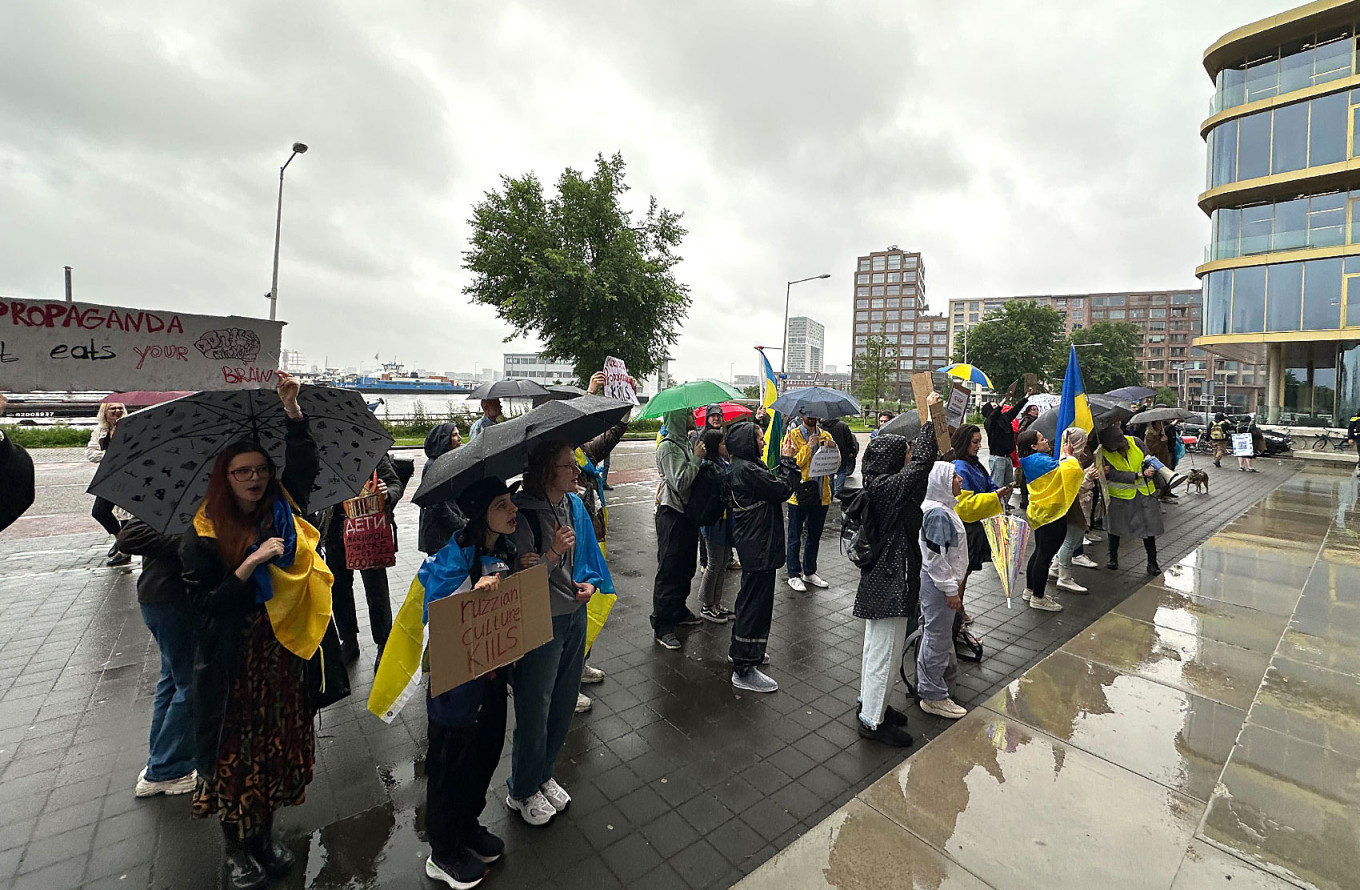
In the theater lobby before the sold-out show, some attendees took photos of protesters through the glass windows. Others could be heard discussing the news over glasses of sparkling wine.
“I was surprised at how our [fellow attendees] reacted — they looked away [from the protesters]. I looked right at them,” said Alisa, a Russian emigre who was going to the show with her friend.
“Many of the people who came to the show do not support the war, and we have a negative view of the war, of course,” she said. “The aggression in the crowd was frightening. We had fingers pointed at us and such. It's good that there are police here.”
On the first day of Russia’s full-scale invasion of Ukraine, Urgant, who is often likened to U.S. late-night talk show host Jimmy Kimmel, posted a black square to his Instagram account with the caption “Fear and pain. No to war.”
Although his show was taken off the air almost immediately afterward, he has since remained silent about the war. He did not respond to The Moscow Times’ request for comment.
Pozner, meanwhile, rose to fame in the West during the Cold War for his television appearances where he would explain the Soviet Union’s views and policies, a role he would later describe as “propaganda.”
His interview show on Channel One, which was watched by millions and often compared to “Larry King Live,” stopped airing after the invasion of Ukraine. He later said this was a move by the channel to make room for coverage of the war.
In a 2016 debate with Kremlin critic Alexei Navalny, Pozner said: “Yes, censorship exists [in Russia]. And I accepted it. I could have slammed the door [closed the show] and done nothing at all. But I believe that I am doing something useful for society. I'm making people think.”
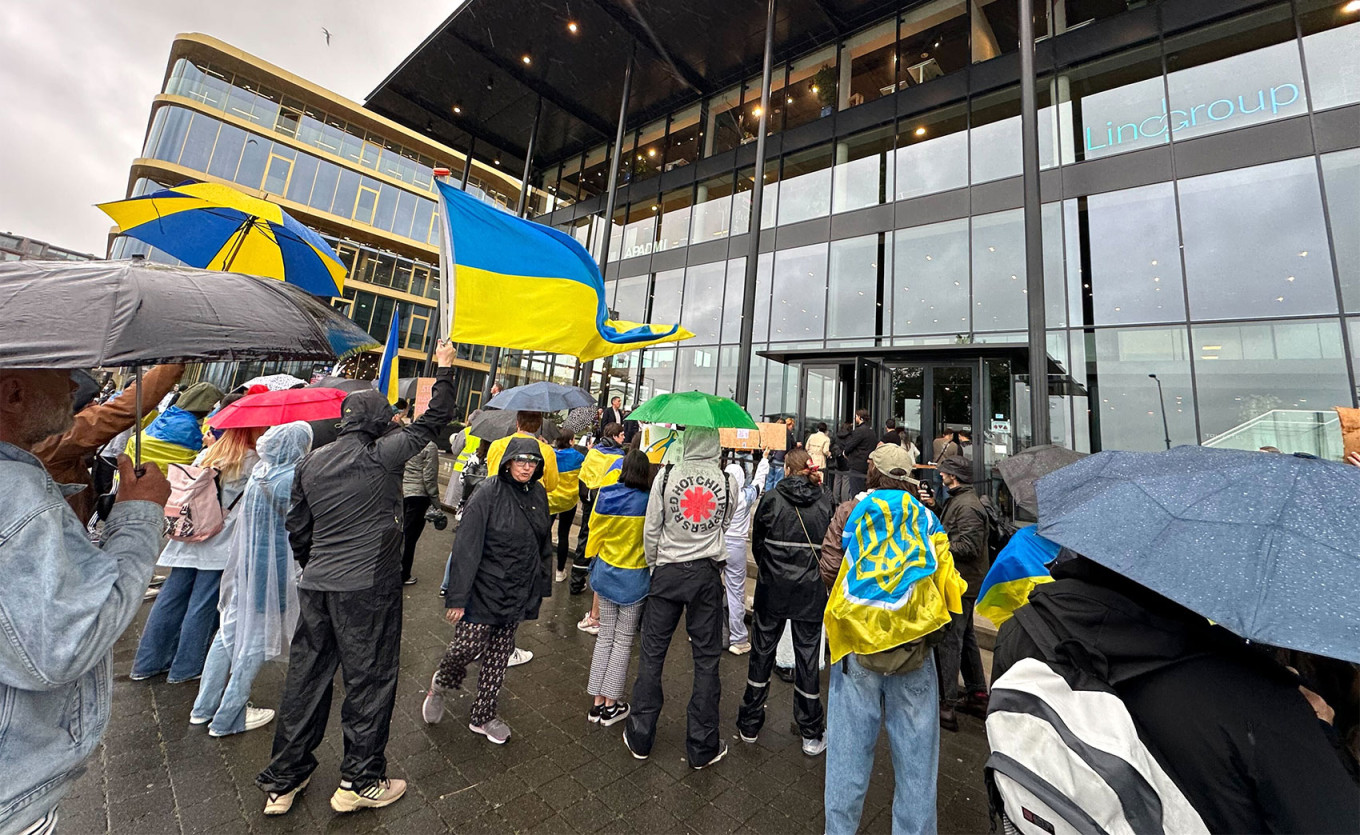
Though he has neither criticized nor supported the war in public, Pozner has suggested that the West bore responsibility for Moscow’s invasion because it refused Russia’s demand to block Ukraine’s path to NATO membership.
When asked about the protesters outside the venue, Pozner told The Moscow Times that it was “their right” to express their opinion but declined to comment further.
Theater Amsterdam declined to comment for this story, instead referring The Moscow Times to a May 24 statement published on its LinkedIn page.
In its statement, the theater said it “stands for freedom of speech, creative expression and a safe environment for everyone who embraces the arts.”
“These performers have indicated that their program has nothing to do with the war and want to share their performance in an atmosphere of peace and freedom,” the theater said, noting that its staff had received threats and intimidation over the event.
Inside the theater sat Olga — a woman from Lviv, a Ukrainian city near the Polish border described by the Kremlin and Russian propagandists as an alleged hub of “Russophobia” — who moved to Amsterdam because of the war.
Speaking in Russian, she told The Moscow Times that she felt “embarrassed” to be at the event.
“I've been following Urgant and Pozner for about 15 years and I wanted to see them in person,” she said.
“Only here did I find out that Pozner supported the war,” she continued. “If I had known [beforehand], there's no way I would have come.”
A Message from The Moscow Times:
Dear readers,
We are facing unprecedented challenges. Russia's Prosecutor General's Office has designated The Moscow Times as an "undesirable" organization, criminalizing our work and putting our staff at risk of prosecution. This follows our earlier unjust labeling as a "foreign agent."
These actions are direct attempts to silence independent journalism in Russia. The authorities claim our work "discredits the decisions of the Russian leadership." We see things differently: we strive to provide accurate, unbiased reporting on Russia.
We, the journalists of The Moscow Times, refuse to be silenced. But to continue our work, we need your help.
Your support, no matter how small, makes a world of difference. If you can, please support us monthly starting from just $2. It's quick to set up, and every contribution makes a significant impact.
By supporting The Moscow Times, you're defending open, independent journalism in the face of repression. Thank you for standing with us.
Remind me later.




